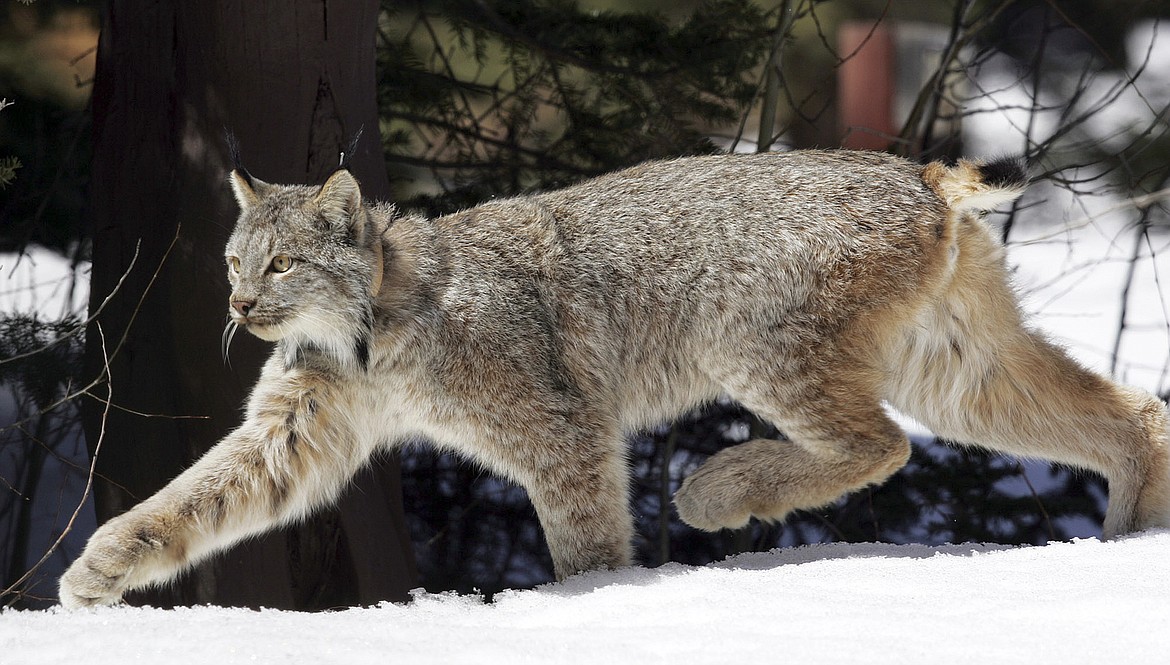Idaho won't have to alter trap rules to protect lynx
BOISE (AP) — Idaho doesn’t need to change trapping regulations where federally protected Canada lynx are likely to be caught in traps set for bobcats, a federal court said in a decision that reversed its earlier ruling.
U.S. District Court Judge B. Lynn Winmill on Wednesday said he was reconsidering his prior decision based on new evidence put forward by the U.S. Fish and Wildlife Service making clear the agency allows the incidental capture of lynx that are released unharmed.
The federal agency exempting lynx caught by licensed trappers targeting bobcats, Winmill wrote, “makes it far less likely that illegal takes will occur in the future.”
“We are pleased with the ruling because it validates the state’s position that authorized trapping in Idaho is not a threat to the lynx population,” Idaho Gov. C.L. “Butch” Otter — one of the Idaho officials named in the lawsuit — said in a statement.
The Center for Biological Diversity is one of the groups that initiated the lawsuit against Otter, the Idaho Department of Fish and Game and other state officials in 2014.
The court in January 2016 ordered Idaho to alter trapping regulations in the Panhandle and Clearwater regions in northern Idaho. Idaho officials asked the court to reconsider, and trapping regulations remained unchanged concerning lynx while the case played out, leading to Wednesday’s ruling.
“We are disappointed,” said Andrea Santarsiere, senior attorney with the center. “I think the reality is this means more lynx might be killed in Idaho and that’s certainly not the outcome we were hoping for.”
She said the groups are reviewing the ruling and haven’t decided their next move.
Canada lynx, about the size of bobcats but with huge paws to help them navigate deep snow, have been listed as threatened under the Endangered Species Act since 2002.
Winmill’s ruling on Wednesday focused on new evidence from Bridget Fahey of the U.S. Fish and Wildlife Service. Winmill said the new evidence makes it clear that Fahey has the authority to speak on behalf of the federal agency, which Winmill said wasn’t obvious in previous court documents.
That meant, Winmill said, that Fahey’s testimony makes it clear the agency views documents called the Convention on International Trade in Endangered Species Biological Opinion and Incidental Take Statement as exempting from the Endangered Species Act the incidental capture of lynx by Idaho trappers targeting bobcats. The international trade document is an agreement between governments intended to prevent wiping out plants and animals.
The federal agency said there’s no limit on the number of lynx that can be captured and released unharmed.
Winmill noted in his ruling there were only four reported lynx trappings in Idaho, and three of those fell under the exemption. The one that didn’t involve the 2014 capture of a lynx by a trapper targeting wolves.
The Idaho Trappers Association intervened in the case out of concern lynx-related restrictions would limit trapping for other species, including wolves.
“It’s a backdoor way of trying to shut down trapping,” said Rusty Kramer, the group’s president. “A lot of this is uneducated people thinking these foothold traps are killing animals. It’s just catching them by the paw, and they can be turned loose.”

